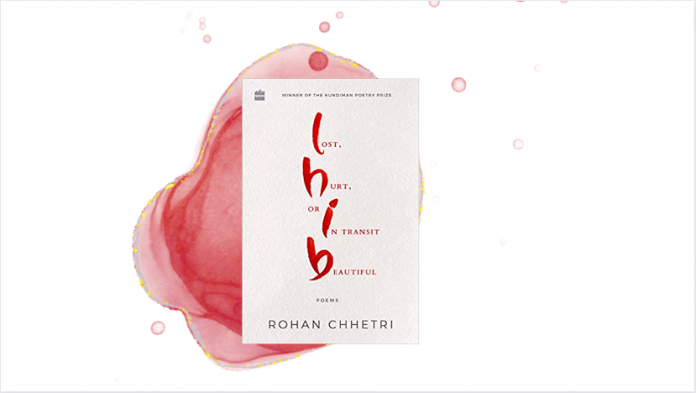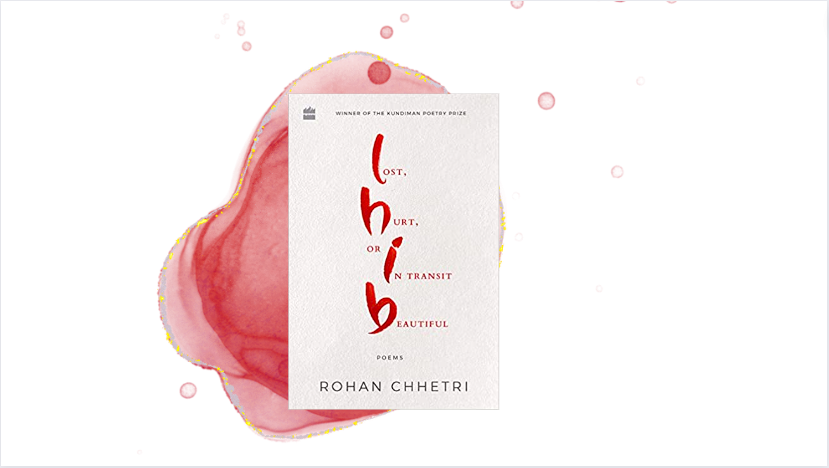Lost, Hurt, or in Transit Beautiful
by Rohan Chhetri
Publisher: Harper Collins (2021)
“We are each given heaven for brief so heavy
We put it down and dance around it.”
-Rohan Chhetri
‘Lost, Hurt, or in Transit Beautiful’
For anyone who has a love for poetry or even those who would like to understand what beauty a book of poetry has, ‘Lost, Hurt, or in Transit Beautiful’ is a good place to start.
Just as the title strikes a chord of curiosity in the reader, the poetry is just as captivating. These poems take whoever reads them on a journey across memories, experiences, questions, places and time. It begins with the King’s Feedery, moving to the story of a singing bone, lamenting for a friend, Delhi winters and glimpses of personal revolutions and history. Just like most books of poetry, it is difficult to pinpoint what exactly this book of poetry is about, but it covers many things. Right from love that goes beyond romance, politics, death, religion, personal losses and exploring grief. Rohan Chhetri seems to cover it all in less than a hundred pages.
Unlike many poets who explore the theme of death as the inevitable visit of a friend, I found that death lurks and waits in these poems. It appears and disappears with a strange kind of mysticism which makes you more curious. Sometimes you see it at the first instance, or you don’t fully know until it reveals itself to you. Perhaps this is why most of the poems are elegiac or have tones of an elegy.
The poems can be read as a standalone in whatever order you like. But if you follow the chronological order, you’ll find various verses echo similar stories. The first time I read it, I found it difficult to put set aside or take a break. This is the kind of book that you end up reading in a single sitting without even wanting to move unless you find out what happens after you turn the page and absorb each poem.
One reading was not enough for me to completely understand and soak up everything. I stopped several times to re-read poems and jump back and forth between verses. The imagery, writing, and complex descriptions are completely honest and true to life. Nothing is romanticised, even the elements that may seem a little gruesome to some readers.
There are times when we can see a father who sings while riding pillion “because the breeze makes him young in the face.” But we also see another side of the same character in later poems.
Sometimes we look at Agha Sahid Ali’s question or sometimes we find ourselves looking closely at the poem which emerged from the lines on Christopher Marlowe’s gravestone. But everything is set in a context and nothing is foreign or inaccessible.
My favourite lines were from: The Indian Railway Canticle. I feel as though I can see or experience things the poem talks about. Each time the words seem to mean something different to me.
“Then arriving
home, always the bruised sky of dawn telling me
something I knew, for a moment, then didn’t.”
This also perfectly describes how I felt while reading this book. At times there were flashes when I understood a few more layers and nuances of the poems, only to lose the thread of thought and discover more with every reading.






RELATED ARTICLESMORE FROM AUTHOR
Late Blooming Cherries: Haiku Poetry from India
A Full Circle
Unsung: Poems